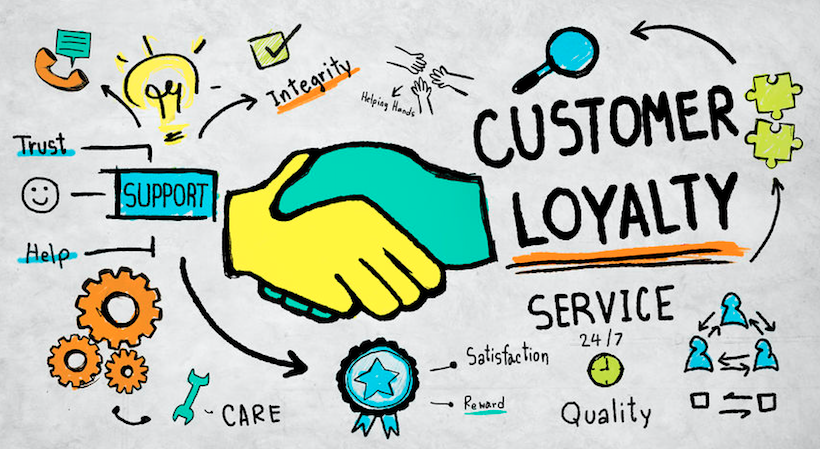At the time of writing this, the world is in the midst of a global recession. Induced by a pandemic and unprecedented state responses, it is even worse than the last international period of economic decline witnessed in 2008. Many who have toyed with the idea of starting their own business pre-pandemic have put their plans on hold as a result. While waiting for the economy to show signs of recovery before setting the wheels in motion certainly seems logical, it isn’t always the best course of action.
During the period of economic turbulence in 2008, I formed my technology consultancy firm, ROCK. At the time, my belief in and dedication to our meticulously-planned business model left me unaware of the circumstances within which I was taking my first steps into the world of entrepreneurship.
For most, 2008 was a time to avoid risk. I, though, enthused by my vision, took the biggest risk someone can take: I sold my car, purchased a van and formed my new business. It is only with the benefit of hindsight that I recognize how beneficial this course of action proved to be. Starting a business during a recession was difficult, but it brought several unforeseeable benefits.
Your Guide to the Season’s Hottest Gifts from Dell: Download Now and Save up to 39% Off
Here, I will list what I found to be the most significant benefits of starting up during a recession. Hopefully, they’ll help you decide whether to hold fire or pull the metaphorical trigger:
Always look to improve
All successful organizations review their practices and implement necessary changes in order to be more efficient. Personal experience has taught me, however, that the de-prioritization of such tasks is common when the expected results are being achieved. It’s entirely understandable, but it’s not conducive to long-term success.
Having formed my business when success was harder to come by, I took nothing for granted. Even when client feedback was overwhelmingly positive, I pored over all reviews looking for deficiencies in our performance.
In doing so, I was able to rapidly identify potential future problems and develop solutions before they generated significant and adverse effects. When sales were being generated, I paid far more attention to missed opportunities than victories. I would review the meetings we attended and proposals we’d submitted, subjecting them to considerable scrutiny, regardless of whether a contract had been won or lost. In doing so, I made sure that this process was constantly evolving.
This mindset and this desire to consistently improve has been woven into ROCK’s culture for more than 12 years. It has led to the creation of new and unique strategies that have allowed us to offer clients better services. We have, for example, developed customer satisfaction frameworks where all signs of dissatisfaction are treated as complaints. The creation of automated monitoring strategies that keep client infrastructure optimized is a further development attributable to a culture shaped by difficult times.
Related: 6 Recession-Proof Side Hustles You Can Start Today to Bring in Extra Cash
Client first
I alluded to this quality above when discussing feedback. Putting your clients first, though, is about more than reactively responding to the opportunities to improve. It is, within my industry at least, about observing and proactively identifying solutions to pain points customers are unaware of.
From the beginning, ROCK knew that we’d need to add value to each and every interaction we had with our clients. When developing a client care team, I made a concerted effort to find candidates who did not just possess the skills typically associated with such a role, but who were commercially and technically proficient, too. This would allow them to determine where actionable and practicable changes could be made to clients’ infrastructure or to provide guidance on how to use technology effectively, for example.
While these additional skills helped the team to go above and beyond client expectations, it is actually a willingness to do so that is most important. Listening to a client, picking up on a need or a problem that can be immediately addressed is vital practice.
If, for example, a client contacts ROCK requesting assistance with a piece of hardware, we make sure to ask them if they have a physical or digital copy of its manual. If they do not, we send them a digital version by email. It’s a simple and, some might say, unremarkable action, but generates a considerable amount of goodwill.
Lean and agile practice
Having worked with businesses of all sizes and throughout numerous sectors, I’ve witnessed the phenomenon known as organizational drag first hand: too many employees become involved in processes, and deadlines stop being met.
Day-to-day practices continue for years, without anyone considering whether or not they add real value to the organization. Licenses for various pieces of software are allowed to automatically renew with no attempt to locate a better deal. These are just a few common examples.
Companies that find themselves hitting targets are often happy to rest on their laurels. When you form during difficult times, though, you know that all processes must be purposeful and optimized, even if profits hit record levels. It’s an approach that quickly becomes second nature.
Sign Up: Receive the StartupNation newsletter!
It’s easier to innovate
Eventually, anyone who starts a business encounters a problem that has no obvious solution. When an organization is performing and there’s budget available, this invites compromise. Often, businesses pick the first out-of-the-box solution they encounter, without determining whether it’s the best solution available or even if it comprehensively addresses the relevant concern. There’s a consistent pattern: the organization makes a purchase, discovers that it doesn’t quite solve the problem but, having already committed, accepts that they can’t fully address the relevant issue and continues to carry on with a patchy, rather than comprehensive, solution.
On the other hand, when purchasing a solution would stretch your budget, you’re more likely to spend time researching it. In turn, you’ll recognize that if it’s not the comprehensive solution you’re looking for. This will inevitably lead to you creating the right solution, whether it involves you commissioning your own app, hiring a new member of staff or something else.
In short, you’ll not just be more careful with your resources during times of crisis; you’ll recognize how best to allocate them or develop new practices to comprehensively address your pain points.
You’ll be more resilient
Stress, worry and anxiety are infectious, but so is confidence. If you start your business in difficult circumstances, you’ll become acclimated to challenges and, more importantly, to overcoming them. You’ll be better prepared to deal with adverse circumstances. Ultimately, you and anyone who was with you throughout the earliest part of your journey will be more resilient.
Resilience is (along with empathy, determination, curiosity and an objective mindset) one of the most important characteristics an entrepreneur can possess.
As a business owner, you will encounter difficulties. When you do, the response of those around you will invariably be influenced by your reaction. If you appear stressed, concern will silently creep through your organization. Do the opposite and, while it’s not guaranteed that confidence will permeate in the same way, your employees are far more likely to respond favorably.
Conclusion
No one could or should blame someone for postponing plans to start their own business when the economy is in decline. Starting up now will bring about a unique and testing set of challenges. These challenges, though, can positively shape an organization and its practices, leading to the development of a business that can take full advantage of ensuing recoveries.






